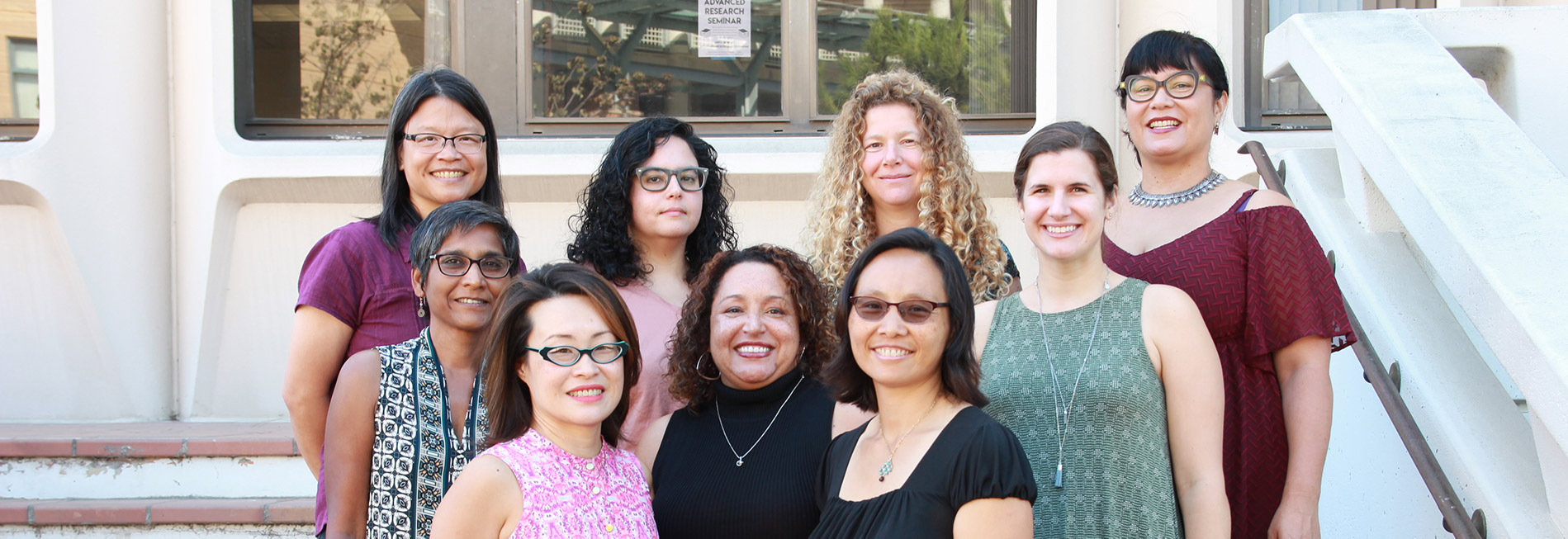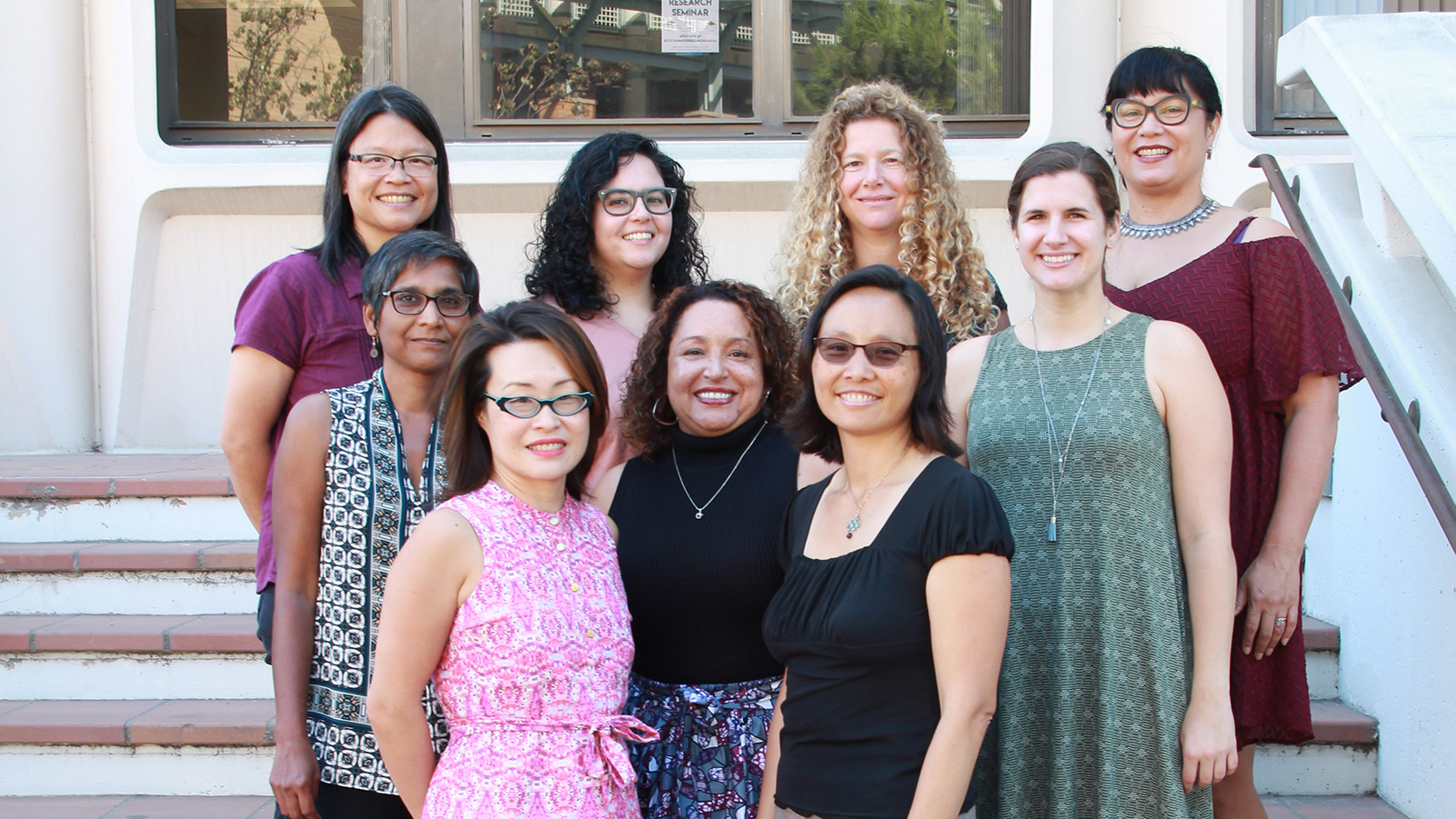Rethinking Transnational Feminisms
Maylei Blackwell
Chicana and Chicano Studies
UC Los Angeles
Judy Wu
Asian American Studies
UC Irvine
Participants
Monisha Das Gupta
Women's Studies and Ethnic Studies
University of Hawaii
Rachel Fabian
Film and Media Studies
UC Santa Barbara
Grace Hong
Gender Studies and Asian American Studies
UC Los Angeles
Rana Jaleel
Gender, Sexuality, and Women's Studies
UC Davis
Zeynep Korkman
Gender Studies
UC Los Angeles
Karen Leong
School of Social Transformation
Arizona State University
Jessica Millward
History
UC Irvine
“Rethinking Transnational Feminisms” explored four sets of key themes.The geographies and processes of transnational feminisms: While we sought to understand and foreground how transnational feminisms emerge from multiple locales across the Global South and North, we also recognize the uneven treatment of certain geographical sites compared to others. New questions emerge when transnational feminisms more fully incorporate Africa and the Americas. How might an attention to borderlands and indigeneity make familiar geographies strange, thereby illuminating the transnational and the imperial within the United States? In addition, we sought to understand the transnational not only in terms of geographies, but also in terms of processes. We, in part investigated settler colonialism, racialization, globalization, decoloniality and post-socialism as gendered political and economic projects across various geographies and time periods. The group also recognizes the importance of labor in transnational feminisms: We define labor broadly as free and unfree; productive and reproductive. A focus on the labor of women, children, and feminized men illuminates the gendered impact of globalization. These social stratifications based on age, class, gender, sexuality, ability, nationality, race, and ethnicity shape the economy, the polity, and also households or kinship units. In addition, drawing attention to labor showcases how gendered laborers adopt migration strategies and engage with activism. Finally, attention to women’s work illuminates how state formations and non-governmental organizations at the local, national, and international levels seek to regulate, improve, or ignore conditions of gendered labor.
“Rethinking Transnational Feminisms” also examined the transformative impact of activism on transnational feminist scholarship: We explored how feminist and queer transnational critiques transformed political movements, both those marked as feminist and queer as well as those seemingly unmarked by gender and sexuality. Transnational framings of the post-human from a feminist perspective is also a vital arena. Here, we focused attention on how transnational corporatization of agriculture and natural resources have eroded women’s roles as community leaders. We also pay attention to women’s activism in environmental and cultural sustainability movements as well as in promoting ethical interspecies relationships. We focused on the transnational abroad and “at home,” by examining how critical this work has been in the Food Sovereignty movement of indigenous peoples of the Americas who have resisted globalized capitalist food production and GMOS by introducing ancestral seeds and technologies. These aims were reached by, first, developing a collective analyses of the field of transnational feminisms. Second, we emphasized the importance of academic/community collaborations by hosting a symposium on transnational feminist activism. Third, our research cluster provided a supportive community to advance original scholarship on transnational feminisms. Finally, we helped to shape the teaching and conceptualization of transnational feminisms by sponsoring a symposium on the best practices and the pitfalls of transnational feminist pedagogies. In addition, the group aimed to publish a reader on the field of transnational feminisms as a result of our collective conversations about existing and new scholarship, activism, and teaching. Such a reader is useful for training students in women, gender, and sexuality studies by highlighting best practices for transnational feminist scholarship.


